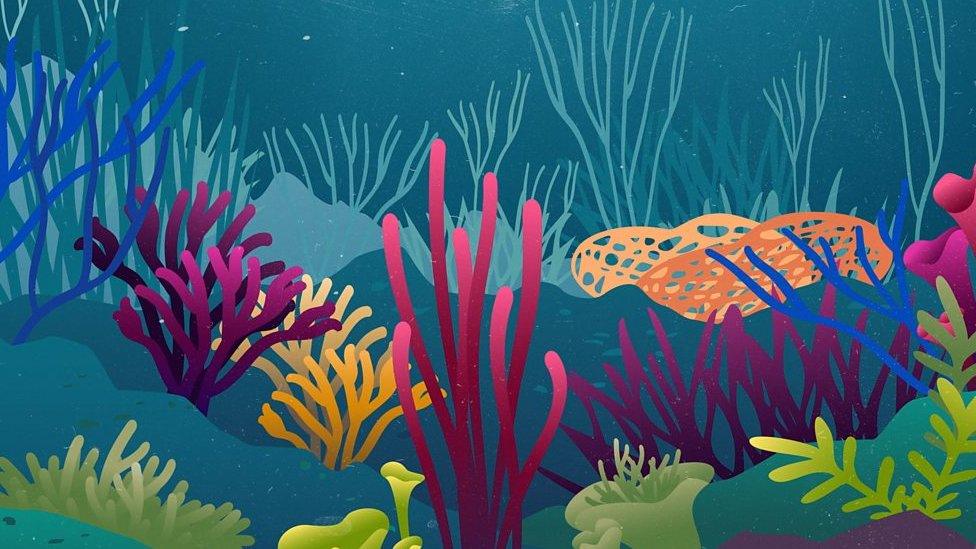Climate change: Great Barrier Reef should be listed as 'in danger', says Unesco
- Published
- comments
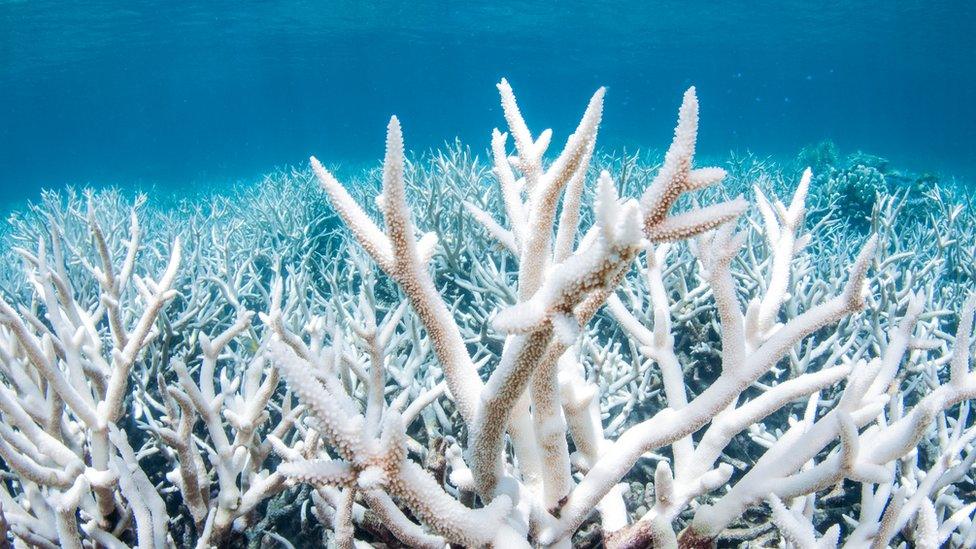
Mass bleaching events of coral is caused by heat stress due to warming seas as a result of global climate change
The United Nations cultural body, Unesco, says The Great Barrier Reef should be put on a list of World Heritage Sites that are "in danger" due to damage caused by climate change.
The world's biggest coral reef system has suffered several bleaching events in the past five years which caused widespread loss of coral.
Scientists say the main reason is rising sea temperatures as a result of global warming caused by the burning of fossil fuels.
Unesco has urged Australia to take "accelerated action" on global warming.
But the Australian government said it would "strongly oppose" downgrading the reef to "in danger".
The Great Barrier Reef: Why Unesco thinks it's "in danger"
WATCH: What is coral bleaching?
In December, the International Union for Conservation of Nature (IUCN) said climate change had tipped the reef into "critical" condition.
And in 2019, Australia's own reef authority downgraded the reef's condition from poor to very poor in its five-year update.
If the reef is downgraded, it will be the first time a natural World Heritage Site has been placed on the "in danger" list primarily due to impacts of climate change.
Listing a site as "in danger" can help address threats by unlocking access to funds or publicity.
But the move could affect a major tourism destination that creates thousands of jobs in Australia.
The reef, stretching for 2,300km (1,400 miles) off Australia's north-east coast, gained World Heritage ranking in 1981 for its "enormous scientific...importance".
After Unesco first debated its "in danger" status in 2017, the Australian government set aside more than A$3 billion (£1.bn; $2.2bn) to improve the reef's health.
Environmental groups say the UN's decision to list the site as "in danger" highlights Australia's weak climate action.
The Australian government is not doing enough to protect our greatest natural asset, especially on climate change
What has the Australian government said?
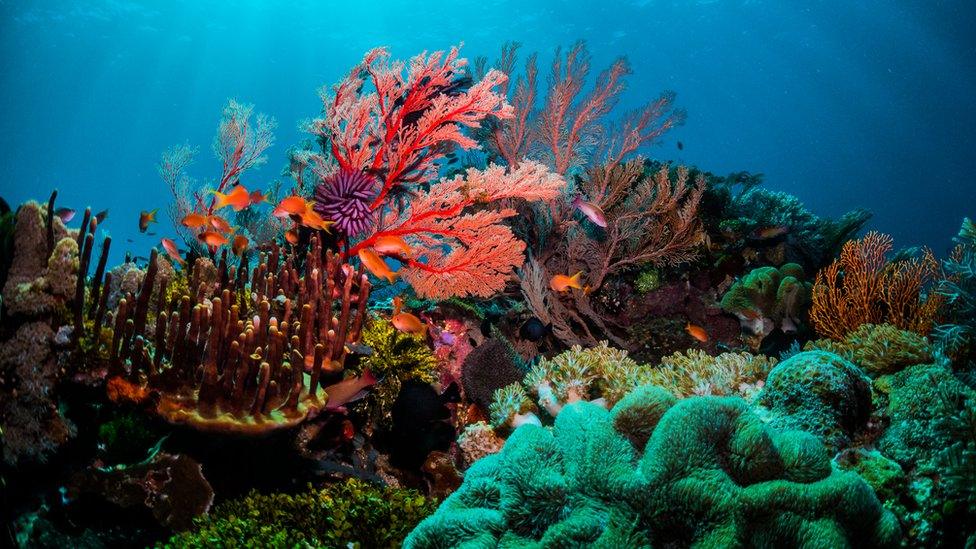
This is what The Great Barrier Reef looks like when it's healthy. Bleaching events turn the coral white and are causing concerns over the reef's long term health
Unesco and the Australian government have been rowing over the status of the reef.
Australia does not want to commit to stronger climate action and is resisting pressure to sign up to a net zero emissions target by 2050.
The country, a large exporter of fossil fuels coal and gas, has not updated its climate goals since 2015.
Its current emissions reduction target is 26-28% of 2005 levels by 2030. In comparison, the UK The UK has committed to cut carbon emissions to 78% of 1990 levels before 2035.
The Australian government said it had been "stunned" by Unesco's decision, calling it a "backflip on previous assurances from UN officials" that the step would not be taken.
Australia believes it is wrong to single out the best managed reef in the world for this potential 'in danger' listing
"Climate change is the single biggest threat to all of the world's reef ecosystems... and there are 83 natural World Heritage properties facing climate change threats so it's not fair to simply single out Australia," said Environment Minister Sussan Ley.
But the Unesco report said that key targets on improving water quality in the reef had not been met.
Why are coral reefs important?
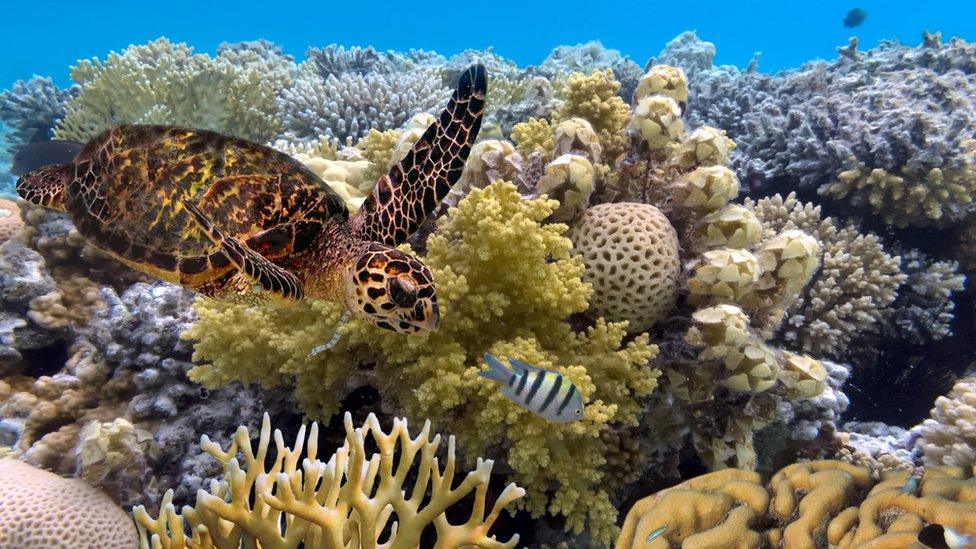
Coral reefs are an important underwater ecosystem, often called the 'rainforests of the ocean'
Coral reefs are hugely important for lots of reasons:
Covering less than 0.1% of the seabed, coral reefs are home to 25% of the world's marine species.
Corals attract fish which provides food for local communities.
Communities rely on the reef for income from fishing.
The reef is a big tourist attraction which provides jobs.
Their large structures protect the coastline from erosion.
And corals and other organisms living on coral reefs can even be used to make medicines.
- Published14 October 2020
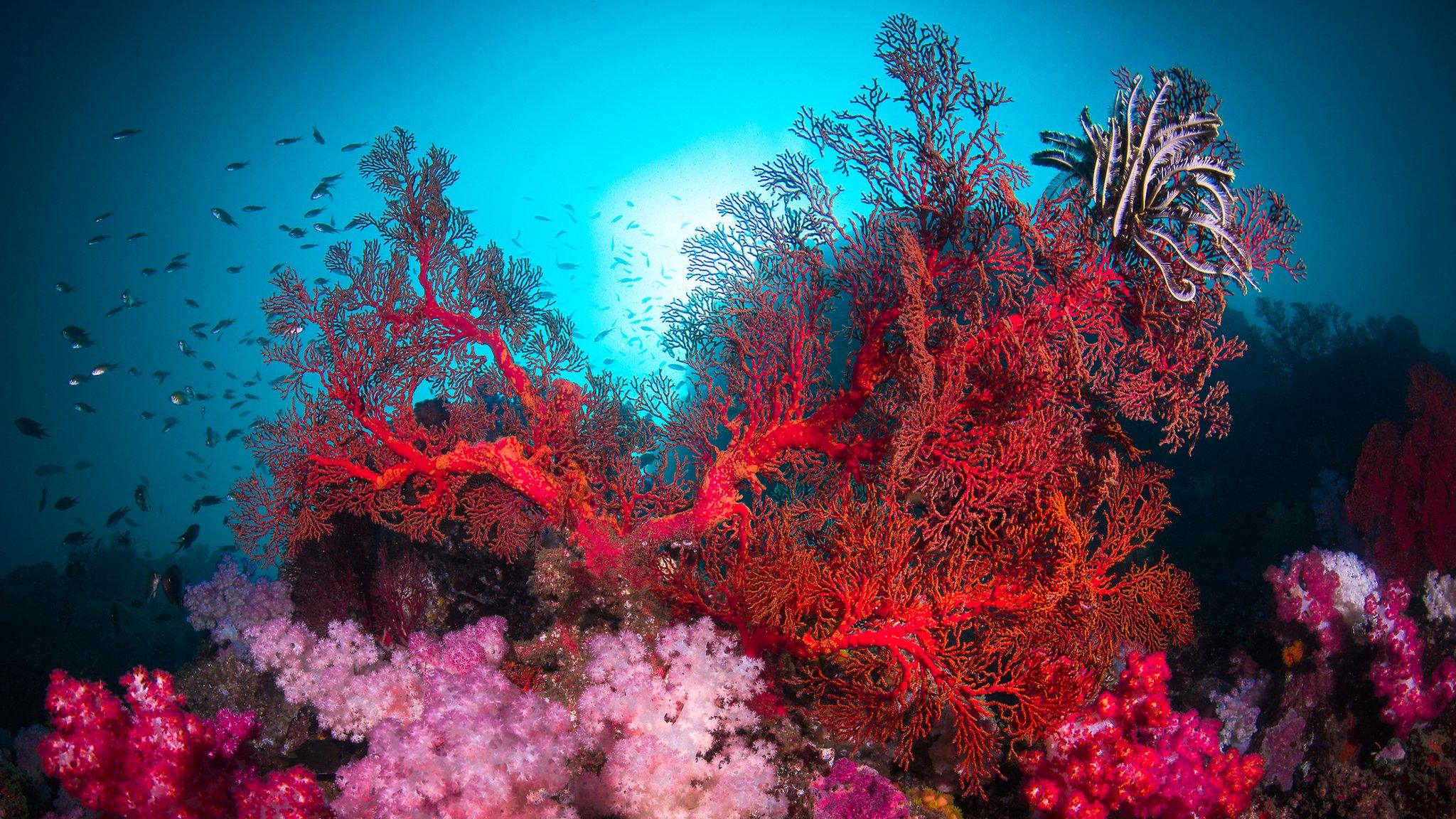
- Published14 March 2016
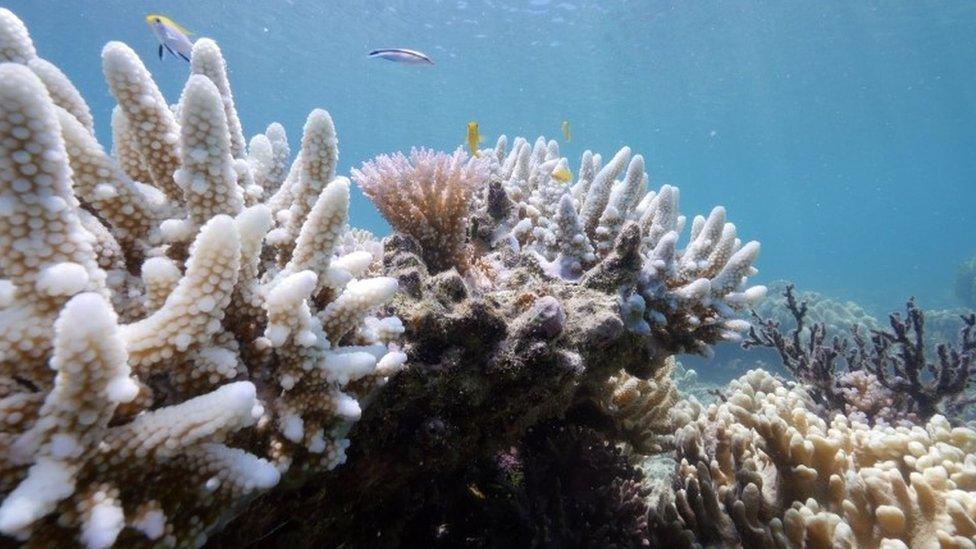
- Published14 September 2020
